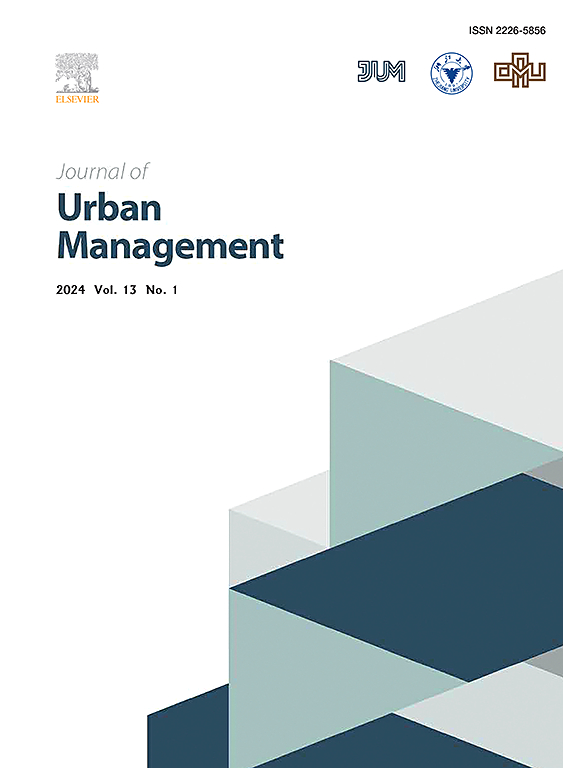Analyzing determinants of traffic violations in a multi-cultural setting: Case of Abu Dhabi
IF 5
2区 社会学
Q1 URBAN STUDIES
引用次数: 0
Abstract
Abu Dhabi, the largest emirate in the United Arab Emirates (UAE), has a diverse population of 2.908 million, with 81% being non-Emiratis from various global regions. This diversity in demographics introduces a complex driving environment with varying skills and experiences, particularly as the majority rely on private vehicles. Road accidents are a leading cause of death globally, with the eastern Mediterranean region, including the UAE, reporting high fatality rates. In Abu Dhabi, the unique licensing policy allows residents from certain countries to obtain a UAE license without testing, potentially contributing to traffic violations and accidents. This study examines the relationship between the UAE's licensing policies and traffic violations in Abu Dhabi using responses from 354 participants surveyed across five vehicle inspections centers, providing insights for policy improvements. We find that: 1) switching of license reports better driving behavior and fewer traffic violations in comparison to those testing for their UAE license; 2) foreign drivers from the Eastern have a lower frequency of traffic violations, which may be related to cultural differences; 3) household size, income, and education correlate with traffic violations; and 4) irritable drivers have a significantly higher frequency of violations. Our findings challenge assumptions about the risks associated with license conversion and highlight the complex interplay of sociodemographic factors, driving behaviors, and local driving knowledge in shaping traffic violation patterns.
多元文化背景下交通违规的决定因素分析:以阿布扎比为例
阿布扎比是阿拉伯联合酋长国(UAE)最大的酋长国,拥有290.8万人口,其中81%是来自全球各地的非阿联酋人。人口统计数据的多样性带来了复杂的驾驶环境,需要不同的技能和经验,尤其是在大多数人依赖私家车的情况下。道路交通事故是全球死亡的主要原因,包括阿联酋在内的东地中海区域报告的死亡率很高。在阿布扎比,独特的许可证政策允许来自某些国家的居民无需考试即可获得阿联酋驾照,这可能会导致交通违规和事故。本研究利用来自五个车辆检查中心的354名参与者的反馈,研究了阿联酋许可政策与阿布扎比交通违规行为之间的关系,为政策改进提供了见解。我们发现:1)与那些测试阿联酋驾照的人相比,更换驾照的人报告了更好的驾驶行为和更少的交通违规行为;2)来自东方的外籍司机交通违规频率较低,这可能与文化差异有关;3)家庭规模、收入和受教育程度与交通违法行为相关;4)易怒司机的违规频率明显更高。我们的研究结果挑战了有关驾照转换风险的假设,并强调了社会人口因素、驾驶行为和当地驾驶知识在形成交通违规模式方面的复杂相互作用。
本文章由计算机程序翻译,如有差异,请以英文原文为准。
求助全文
约1分钟内获得全文
求助全文
来源期刊

Journal of Urban Management
URBAN STUDIES-
CiteScore
9.50
自引率
4.90%
发文量
45
审稿时长
65 days
期刊介绍:
Journal of Urban Management (JUM) is the Official Journal of Zhejiang University and the Chinese Association of Urban Management, an international, peer-reviewed open access journal covering planning, administering, regulating, and governing urban complexity.
JUM has its two-fold aims set to integrate the studies across fields in urban planning and management, as well as to provide a more holistic perspective on problem solving.
1) Explore innovative management skills for taming thorny problems that arise with global urbanization
2) Provide a platform to deal with urban affairs whose solutions must be looked at from an interdisciplinary perspective.
 求助内容:
求助内容: 应助结果提醒方式:
应助结果提醒方式:


